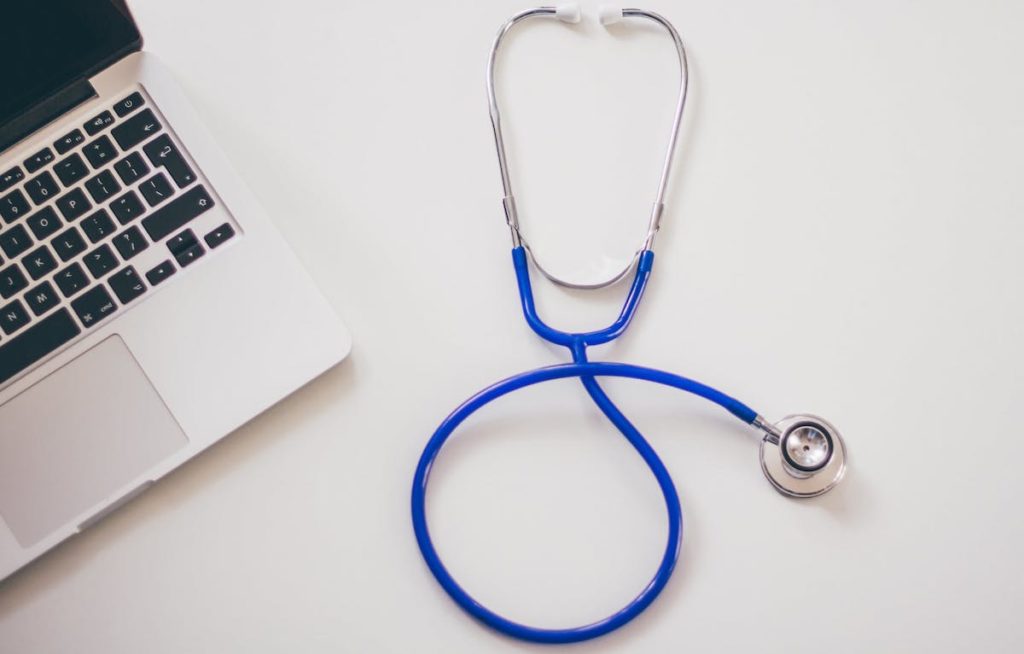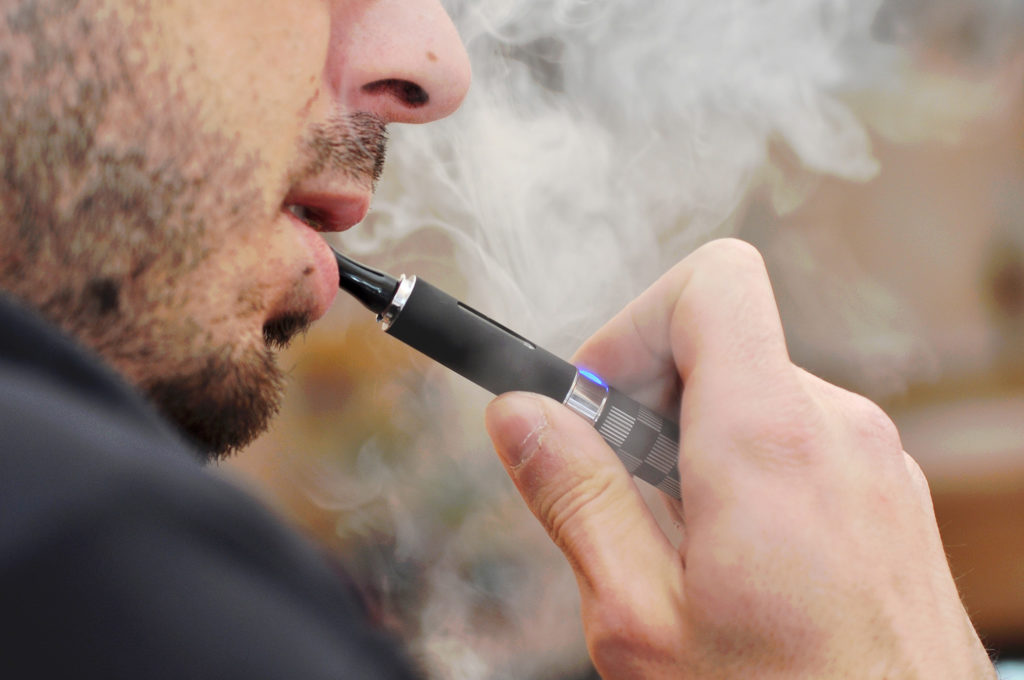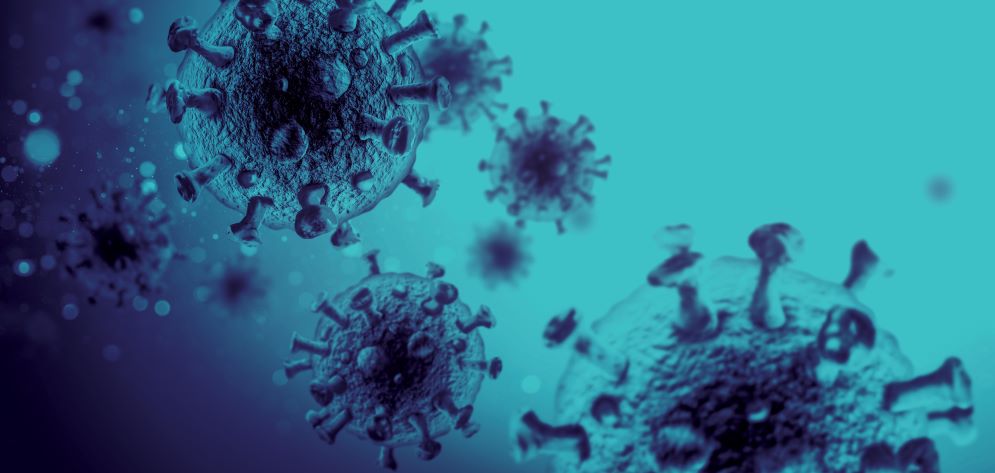Expert

Jessica Stultz
Actions
Type
Topic
- Quality and Safety
Tags
The Quality & Safety Update provides health care professionals with up-to-date information on current quality improvement projects, resources and quality reporting. The newsletter also highlights announcements and upcoming events that could benefit your organization.

Missouri’s COVID-19 Response: A Clinical and Operational Reflection for Missouri Hospitals
Staff Contact: Jackie Gatz
Amid the current Delta variant surge, the COVID-19 pandemic has posed unprecedented challenges for health care organizations. No level of planning or preparation could fully inform the scale, longevity or level of impact the virus would have on our organizations, communities and nation.
During the last 18 months, hospitals have demonstrated agility and resiliency as new challenges arose throughout the response. As case levels stabilized in spring 2021, hospital operations shifted to monitoring and managing COVID-19 in the long term, to include outbreaks. MHA compiled this summative report to share best practices, assist member organizations with assessment and improvement activities, and memorialize all that the state’s hospitals have accomplished during this historic response.
Building on the mid-response assessment published in September 2020, this report follows the chronological progression of the COVID-19 pandemic in Missouri, highlighting key clinical and operational areas of incident management, data collection and analytics, disease surveillance, clinical treatment, health care system surge, vaccine administration, the emergence of variants, and reopening, despite continued outbreaks.
Within each section is a timeline highlighting key events, along with a member hospital spotlight to illustrate varied perspectives and approaches to a given issue. Data insights published throughout the response by MHA and the Hospital Industry Data Institute are included to memorialize key “moments in time” through the surge, vaccination and recovery phases. Finally, the report includes aggregate data from MHA’s annual safety and preparedness program assessment. This assessment, completed in April 2021 by 112 member hospitals, helps inform this publication, future statewide programming and member technical assistance.
Orientation for New Infection Preventionists
Staff Contact: Jessica Stultz
MHA is offering additional opportunities for hospitals to build upon their capability and capacity of their employees. MHA is collaborating with A3 Healthcare to offer additional Lean Six Sigma belt certifications. After receiving an abundance of applications, MHA selected 22 individuals for the LSS Green Belt Certification Program and five individuals for the Black Belt Program. These students will complete the programs subsidized by MHA. Additional opportunities for belt certification are in the works for 2022.
Maternal-Child Health
Staff Contacts: Alison Williams
Missouri NAS Collaborative Update
The Missouri Neonatal Abstinence Syndrome Collaborative recently completed baseline data collection for the project and began monthly intervention phase data collection. The 16 teams enrolled in this QI collaborative have been working diligently to develop, refine and implement policies on nonpharmacologic, pharmacologic and neonatal transfer; complete education on the Eat, Sleep, Console model; complete education on reducing stigma/implicit bias for the maternal substance use disorder population; and participate in bi-monthly NAS ECHOs as part of MHA’s collaboration with the Missouri Telehealth Network. Each of these elements contributes to the overall efforts to implement the ESC model of the mother-infant dyad affected by SUD.
Missouri AIM Launches OB-SUD Collaborative
The Missouri Alliance for Innovation in Maternal Health currently is enrolling birthing units, birthing centers and provider practices into the Obstetrical Care for Women with SUD QI collaborative. The OB-SUD collaborative launched Oct. 1 and is planned to conclude in December 2023. The key goals of the OB-SUD Collaborative, beyond decreasing maternal morbidity and mortality, are as follows.
- Increase the rate of maternal patients receiving universal screening, brief intervention, and referral to treatment (SBIRT) across prenatal, intrapartum and postpartum settings.
- Increase the rate of medication-assisted treatment and/or behavioral health treatment for maternal patients with OUD during pregnancy.
- Decrease the average number of opioid pills prescribed at discharge for patients after vaginal and cesarean delivery.
- Create equitable, nonstigmatizing care settings to enable maternal patients with SUD to bravely disclose their misuse and obtain access to critical health care.
Missouri currently is ranked 44th in the nation with an increasing incidence of severe maternal morbidity and a widening disparity between Black and white mothers. Based on data reviews from national sources and from the Missouri Pregnancy-Associated Mortality Review Board, Missouri AIM selected the topic of OB-SUD as the state’s next priority issue. Evidence from the 2021 MO PAMR report (2018 data) indicates that mental health disorders are the leading cause of maternal death, with SUD accounting for 54% of pregnancy-related and 43% of pregnancy-associated deaths. The MO PAMR Board identified 82% of these deaths as preventable with a 63% majority of pregnancy-related deaths occurring between 43 days and one year after pregnancy. Significant, committed action is needed by all stakeholders who care for women of childbearing age to prevent ongoing mortality. An informational webinar recording is available.
MHA Welcomes New Employee
MHA is pleased to announce the addition of Courtney McElyea, Director of Clinical Quality, to our team! Courtney will be helping manage the maternal health improvement efforts, including facilitating and leading the Missouri AIM quality improvement collaboratives. She brings more than 20 years’ experience in quality, safety and process improvement across the health care spectrum, along with expertise in patient-centered medical home models and ambulatory services. Courtney may be reached at cmcelyea@mhanet.com.
Opioid Use Disorder
Staff Contact: Shawn Billings
MHA, DMH Expand EPICC Eligibility
MHA has worked closely with the Missouri Department of Mental Health to roll out the Engaging Patients in Care Coordination Program expansion. The expansion will augment eligibility requirements for participants, allowing coaches to connect patients diagnosed with opioid use disorder, stimulant use disorder and alcohol use disorder to community-level care, treatment and resources. Official contracts for each respective agency have been sent out by DMH, and the expansion went live on Oct. 1. A special thanks to DMH and our partners that support Missouri’s EPICC bridge model – we couldn’t offer this life-saving program without you!
Opioid Settlement Update
On July 21, a group of state attorneys general announced a $26 billion national settlement in response to claims that the three largest U.S. pharmaceutical companies and Johnson & Johnson helped fuel a deadly nationwide opioid epidemic. As of Aug. 25, Missouri Attorney General Eric Schmitt has signed both term sheets for the proposed opioid settlements with J&J and major distributors AmerisourceBergen, Cardinal Health and McKesson. This is the largest victim-centric settlement that the state of Missouri has ever seen with more than half a billion dollars going directly toward opioid abatement and treatment.
FLEX MBQIP Updates
Staff Contacts: Sherry Buschjost or Stephen Njenga
MHA Recognizes Top Performing CAHs
While emergency care is important in all hospitals, the emergency department particularly is important in critical access hospitals where the distance to urban tertiary care centers makes the effective triage, stabilization and transfer of patients an area of focus. ED transfer communication measures allow CAHs to show how well they carry out their important stabilize-and-transfer role for rural residents. This measure is required of hospitals participating in the FLEX MBQIP program in Missouri and throughout the nation.
As of the second quarter of 2021, the following CAHs achieved 100% compliance in the ALL EDTC composite score, putting them in the top performers’ list of CAHs in Missouri and the nation.
- Cox Barton County
- Carroll County Memorial Hospital
- Cass Regional Medical Center
- Ellett Memorial Hospital
- Harrison County Community Hospital
- Hedrick Medical Center
- Hermann Area District Hospital
- Lafayette Regional Health Center
- Madison Medical Center
- Mercy Hospital Lincoln
- Mercy St. Francis Hospital
- Missouri Baptist Sullivan Hospital
- Perry County Memorial Hospital
- Putnam County Memorial Hospital
- St. Genevieve County Memorial Hospital
COVID-19 Updates
Staff Contact: Jackie Gatz
Monoclonal Antibody Regional Infusion Centers
Monoclonal antibody infusions continue to be a sound strategy to reduce COVID-19 hospitalizations, and, when utilized by community partners, may reduce additional strain on health care operations. To assist with these efforts, MHA compiled a list of Regional mAb Infusion Centers, which includes their location and contact information.
MHA Publishes COVID-19 After-Action Report/Improvement Plan Forms and Debriefs
MHA developed forms to assist hospitals in drafting after-action reports and improvement plans in response to the COVID-19 pandemic. Debriefs are held on a bi-weekly schedule to provide an opportunity for hospitals to share best practices to assist in guiding reports and plan development. Each session is recorded so hospitals may access the webinars if they are unable to attend. These resources only are available to MHA member hospitals, and users must log in to the website to access the resources.
Information Available On Third Dose And Booster Doses Of COVID-19 Vaccines
The Centers for Disease Control and Prevention now recommends certain individuals receive additional COVID-19 vaccines. A third dose is for immunocompromised individuals who may not have had a strong enough immune response to the primary vaccine series while a booster dose is an additional vaccination that is given to individuals as their protection weakens over time.
On Aug. 12, the U.S. Food and Drug Administration amended the emergency use authorization for both the Pfizer and Moderna COVID-19 vaccines for use of a third dose in solid organ transplant recipients or those who are diagnosed with conditions that are considered to have an equivalent level of immunocompromise. On Sept. 22, the FDA expanded the EUA of the Pfizer COVID-19 vaccine to authorize booster doses for certain individuals to include those over the age of 65, long-term care residents, individuals over the age of 18 with underlying medical conditions, or individuals who work or live in high-risk settings. The FDA Vaccines and Related Biological Products Advisory Committee is scheduled to meet soon to discuss booster doses for the Moderna and Johnson & Johnson COVID-19 vaccines.
Sign Up For COVID-19 Updates
For COVID-19 Updates, please visit the MHA COVID-19 web page. To receive regular COVID-19 updates from MHA in your inbox, fill out the online form.
Announcements
MoAHQ Update
MoAHQ is in the process of selecting a recipient of the 2021 Distinguished Quality Professional award. The nomination applications were exceptionally outstanding, and Missouri is honored to have such brilliant quality leaders in our state. The winner will be announced at the annual MoAHQ quality summit in November and will be posted in our upcoming newsletter.
CDC Publishes Blog Post On Sepsis
September is recognized as Sepsis Awareness Month to help raise awareness of the fight against sepsis, a life-threatening medical emergency that affects millions of people each year. Anyone can get an infection, and almost any infection — including COVID-19 — can lead to sepsis.
The Centers for Disease Control and Prevention posted a Safe Healthcare Blog post, “Sepsis Opportunities: Lessons from the COVID-19 Pandemic,” by CDC sepsis experts, Dr. Runa Gokhale and Dr. Raymund Dantes. The post highlights how the COVID-19 pandemic has uncovered unique opportunities to better understand how infections develop and how to care for patients. This includes how to structure health care systems to provide improved infection prevention, better understand sepsis, and better care for patients and survivors in the short- and long-term.
October is Safe Sleep Awareness Month
Sleep-related infant death is the leading cause of infant mortality from one month to one year of age. Sleep-related infant death can result from unintentional suffocation/strangulation. The best way to prevent sleep-related deaths is for all parents and caregivers to provide a safe sleeping environment for infants. October is Safe Sleep Awareness Month to help spread awareness about prevention of sleep-related infant deaths. Visit the Safe Sleep MO website for more information.
CDC Updates Infection Control Guidance for Health Care Settings
The Centers for Disease Control and Prevention updated its infection control guidance for health care personnel during a pandemic. The agency said the updates generally do not substantially change recommended practices but aim to clarify and simplify the guidance on respirator and facemask use, SARS-CoV-2 testing, and quarantine for fully vaccinated patients. The guidance for health care settings can be found on the following two web pages.
- Infection Control: Severe acute respiratory syndrome coronavirus 2 (SARS-CoV-2)
- Interim U.S. Guidance for Risk Assessment and Work Restrictions for Healthcare Personnel with Potential Exposure to SARS-CoV-2
MHA Today
- 8/4: TJC Releases Specifications Manual Version 2022A
- 8/9: CMS Releases HQR Support Videos
- 8/11: CMS Releases CART Inpatient Version 4.27.1
- 8/23: CMS Releases Specifications Manual for National Hospital Inpatient Quality Measures Version 5.11
- 8/30: CMS Releases OQR Specifications Manual Version 14.0b
- 9/3: CMS Releases Addenda To IPFQR Specifications Manuals
- 9/3: CDC Study Finds HAIs Increased During COVID-19 Crisis
- 9/24: CDC Issues Pfizer COVID-19 Booster Dose Recommendations
Resources
Human Trafficking Toolkit and Education
While some Missouri hospitals have implemented policies and procedures related to human trafficking, many are looking for resources to inform the development of such policies, procedures and staff education. That’s why MHA and the Missouri Attorney General’s Office collaborated to develop resources to help combat human trafficking. A group of experts from Missouri hospitals and the AG’s Human Trafficking Taskforce developed a Human Trafficking Toolkit, as well as 14 online education modules. Hospitals can use the toolkit to formulate multidisciplinary teams to develop policies and procedures for the identification and treatment of trafficking victims. In addition, the on-demand availability of the modules will make the staff education process efficient and cost-effective. With an estimated 88% of sex trafficking victims encountering the health care system at some point while being trafficked, we hope these resources will help hospitals make an impactful difference.
NHSN Quarter 3 2021 Newsletter
The National Healthcare Safety Network published its Quarter 3 2021 newsletter, which highlights new and updated AUR Module information, analysis and patient safety updates; Healthcare Personnel Safety Module revised materials; steps to take for useful quarterly data quality checks for Dialysis Patient COVID-19 Vaccination Module; NHSN training updates; and more.
Education
COVID-19 Hospital Response After-Action Report/Improvement Plan Debrief
- Oct. 20 | Topic: Surveillance — Access the Recording
- Nov. 10 | Topic: Clinical Treatment — Register
- Nov. 24 | Topic: Vaccine Administration — Register
On-Demand Education
The MHA Health Institute offers cost-effective learning opportunities to both members and nonmembers to help them understand and address emerging issues, learn and share best practices, and comply with legal and regulatory requirements. Learn more.
















